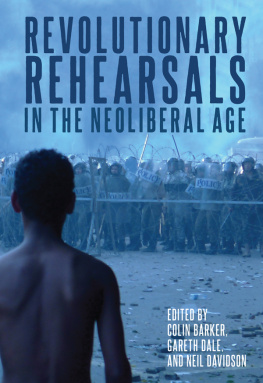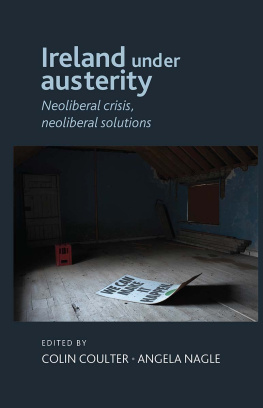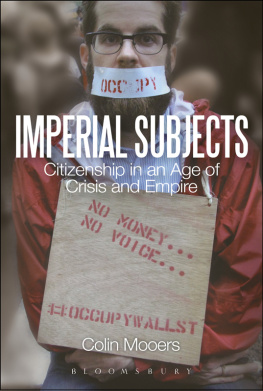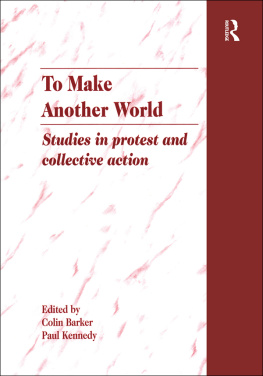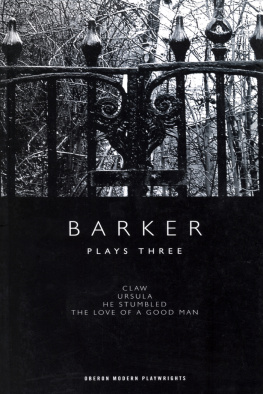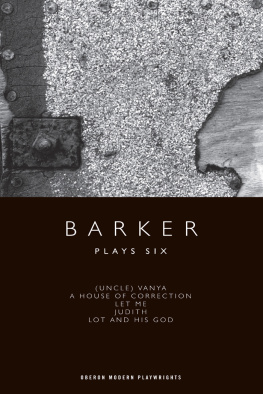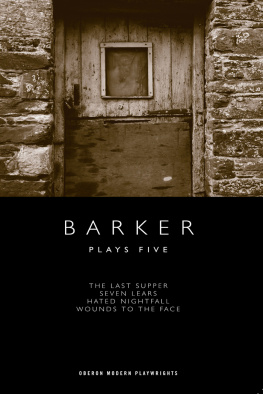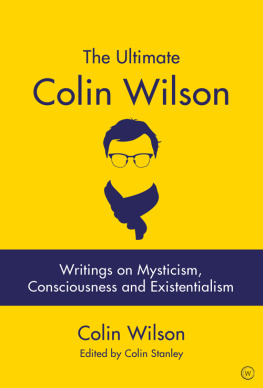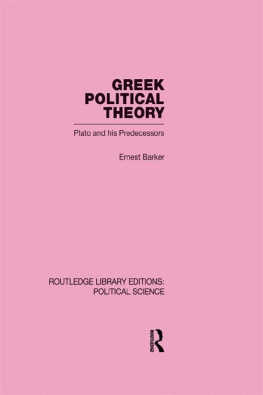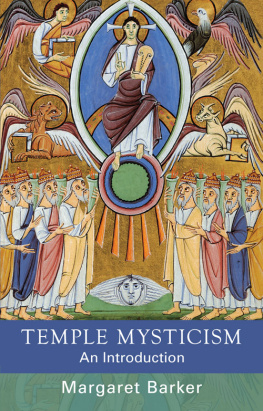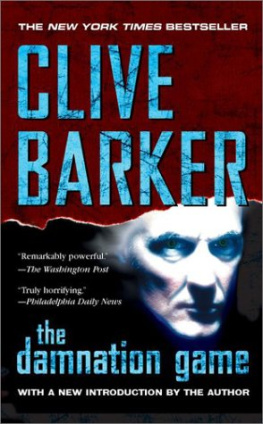Barker Colin - Revolutionary Rehearsals in the Neoliberal Age
Here you can read online Barker Colin - Revolutionary Rehearsals in the Neoliberal Age full text of the book (entire story) in english for free. Download pdf and epub, get meaning, cover and reviews about this ebook. year: 2021, publisher: Haymarket Books, genre: Politics. Description of the work, (preface) as well as reviews are available. Best literature library LitArk.com created for fans of good reading and offers a wide selection of genres:
Romance novel
Science fiction
Adventure
Detective
Science
History
Home and family
Prose
Art
Politics
Computer
Non-fiction
Religion
Business
Children
Humor
Choose a favorite category and find really read worthwhile books. Enjoy immersion in the world of imagination, feel the emotions of the characters or learn something new for yourself, make an fascinating discovery.
- Book:Revolutionary Rehearsals in the Neoliberal Age
- Author:
- Publisher:Haymarket Books
- Genre:
- Year:2021
- Rating:3 / 5
- Favourites:Add to favourites
- Your mark:
- 60
- 1
- 2
- 3
- 4
- 5
Revolutionary Rehearsals in the Neoliberal Age: summary, description and annotation
We offer to read an annotation, description, summary or preface (depends on what the author of the book "Revolutionary Rehearsals in the Neoliberal Age" wrote himself). If you haven't found the necessary information about the book — write in the comments, we will try to find it.
Revolutionary Rehearsals in the Neoliberal Age — read online for free the complete book (whole text) full work
Below is the text of the book, divided by pages. System saving the place of the last page read, allows you to conveniently read the book "Revolutionary Rehearsals in the Neoliberal Age" online for free, without having to search again every time where you left off. Put a bookmark, and you can go to the page where you finished reading at any time.
Font size:
Interval:
Bookmark:
Praise for REVOLUTIONARY REHEARSALS IN THE NEOLIBERAL AGE
General histories of the neoliberal era are shaped by an overwhelming sense of defeat for radical movements. It is, of course, true that neoliberalism was spectacularly ushered in by shattering working-class resistance in some key workplaces in India, Australia, the UK, and the US. Revolutionary Rehearsals in the Neoliberal Age, however, compels us to be attentive to a different view of this era. Tracing revolutionary uprisings from 1989 to 2019, this book is a map of resistance and resilience in the face of tremendous odds. The case studies, as well as the introductory essay, lead us through situations where the victory of capitalism over humanity was anything but assured. And yet the book is not a wistful history about what could have been. Rather, it is a strategic assessment of near-victories to prepare us for the fire next time. TITHI BHATTACHARYA, coauthor of Feminism for the 99%
This fine collection of essays deals with some of the most significant revolutionary situations in the neoliberal era. It makes great reading, with powerful arguments, and concludes with a wager on the future: climate change is a terrible danger, but it has revolutionary potential, because it cannot be prevented by partial reforms that do not challenge the capitalist system itself. MICHAEL LWY, author of Revolutions and Ecosocialism
What remains of revolution after decades of neoliberalism? The question is both perplexing and urgent. With realism and radical intransigence, Revolutionary Rehearsals in the Neoliberal Age tackles it head-on. Acknowledging the inadequacy of longstanding left-wing models to our era, the authors gathered here also refuse to counsel despair. Instead, they trace emancipatory impulses and upheavals across the scorched landscape of neoliberalism. The result is a provocative, stimulating, and deeply radical set of reflections on the meaning of revolution today. This is a book for everyone who wants to change the world. DAVID MCNALLY, author of Blood and Money and Monsters of the Market
How can popular movements not only topple repressive governments, but also create more thoroughly democratic, egalitarian, and solidaristic societies? This is the question that animates the contributions to Revolutionary Rehearsals in the Neoliberal Age, which examines a wide range of revolutionary situations from 1989 to 2019. The case studies, which are well researched and insightful, include Central and Eastern Europe; Africa, including South Africa; Indonesia; Argentina, Bolivia, and the pink tide in Latin America; and Egypt. The theoretical reflections by Colin Barker and Neil Davidson are provocative and challenging. This volume will interest anyone who seeks to understand popular uprisings and revolutions and the ways capitalism motivates, structures, and constrains them. JEFF GOODWIN, professor of sociology, New York University
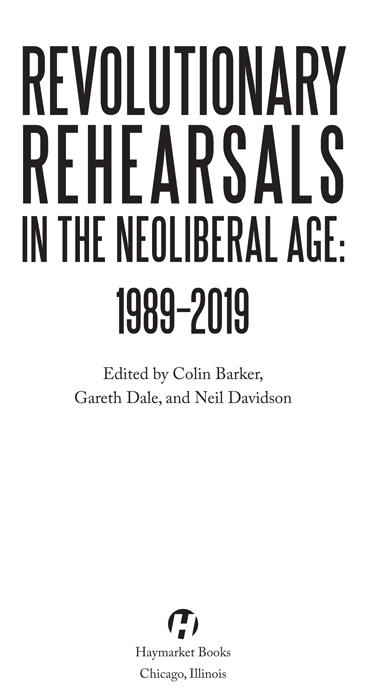
2021 Gareth Dale
Published in 2021 by
Haymarket Books
P.O. Box 180165
Chicago, IL 60618
773-583-7884
www.haymarketbooks.org
ISBN: 978-1-64259-489-8
Distributed to the trade in the US through Consortium Book Sales and Distribution (www.cbsd.com) and internationally through Ingram Publisher Services International (www.ingramcontent.com).
This book was published with the generous support of Lannan Foundation and Wallace Action Fund.
Special discounts are available for bulk purchases by organizations and institutions. Please call 773-583-7884 or email for more information.
Cover design by Eric Kerl.
Cover photo by Alisdare Hickson.
A boy confronts Egyptian military police south of Tahrir Square, 2011.
Library of Congress Cataloging-in-Publication data is available.

Dedicated to the life, work, and memory of Colin Barker (19392019) and Neil Davidson (19572020)
INTRODUCTION
Colin Barker and Gareth Dale
In 1987, Bookmarks Publications issued a volume entitled Revolutionary Rehearsals, edited by Colin Barker. It was subsequently reprinted by Haymarket Books. Its topic was the way in which protest movements can develop into insurgent challenges to state power and how regimes seek to contain and repress revolt. It considered five moments when, it seemed, widespread popular insurgency, with vital roles played by workers occupations and political strikes, posed at least the possibility of socialist revolution. Ian Birchall explored the events of May 1968 in France, with its general strike and factory occupations. Mike Gonzalez considered the year before the 1973 military coup in Chile, placing emphasis on the cordones in the industrial belt. Peter Robinson looked at the Portuguese revolution of 197475, with its mass strikes, workplace occupations, and land seizures by agricultural laborers. Maryam Poya dissected the 1979 Iranian revolution, in which industrial action in the oil sector played a pivotal part. Colin Barker analyzed the Solidarno movement in Poland in 198081, in which strike committees were the effective force, and added a final chapter that drew out some general patterns from these diverse cases.
Early in the last decade, the editors at Haymarket inquired about the possibility of a second edition. The present volume, which looks at a series of popular upheavals since 1989in Eastern Europe, South Africa, Indonesia, Argentina, Bolivia, Venezuela, sub-Saharan Africa, and Egyptis not a direct sequel to the earlier book, but it does follow a similar pattern and asks the question: What did we see accurately in 1987 and what did we miss? As with Revolutionary Rehearsals, we selected case studies that raised questions concerning the potential of revolutionary episodes to break out beyond the anticipated script. We asked authors to look at both processes and outcomes but to avoid the retrospective determinism that assumes the latter were foreordained. This would be to miss the what if questions that arise specifically within revolutionary struggles. All of this poses questions of what we understand by a revolutionary rising, so before turning to ask what did we miss in 1987, let us briefly unfurl the conceptual map.
Revolutions: Definitions and variations
The book is about revolutionary risings. By revolution we refer to a political process with two analytically distinct aspects: a revolutionary situation and an outcome. The first is a specific and temporary political moment in which two or more rival blocs struggle for state power. The category includes not just successful but also defeated revolutionary attempts, and not only those that feature mass movements (the focus of this volume) but also military coups, civil wars, and counterrevolutions.
The patterns of causation and the inner processes of revolutionary situations vary widely in the extent of popular involvement and the role played by social movements, in the layers of populations involved and the nature of their activities, and in duration: compressed in time or extended over years. And what begins as one type may turn into anotherfor example, where a coup sets off a popular mobilization, either to oppose it (as in the 1920 Kapp Putsch in Germany) or to extend and transform it (as in Portugal in 1974). Equally variable are the outcomes of revolutionary situations. One or another group of contenders may gain state power, displacing the previous regime. Or they may come to some form of compromise with the old regime. Revolutions may of course be defeated, if the old regime succeeds in remobilizing its forces.
Next pageFont size:
Interval:
Bookmark:
Similar books «Revolutionary Rehearsals in the Neoliberal Age»
Look at similar books to Revolutionary Rehearsals in the Neoliberal Age. We have selected literature similar in name and meaning in the hope of providing readers with more options to find new, interesting, not yet read works.
Discussion, reviews of the book Revolutionary Rehearsals in the Neoliberal Age and just readers' own opinions. Leave your comments, write what you think about the work, its meaning or the main characters. Specify what exactly you liked and what you didn't like, and why you think so.

